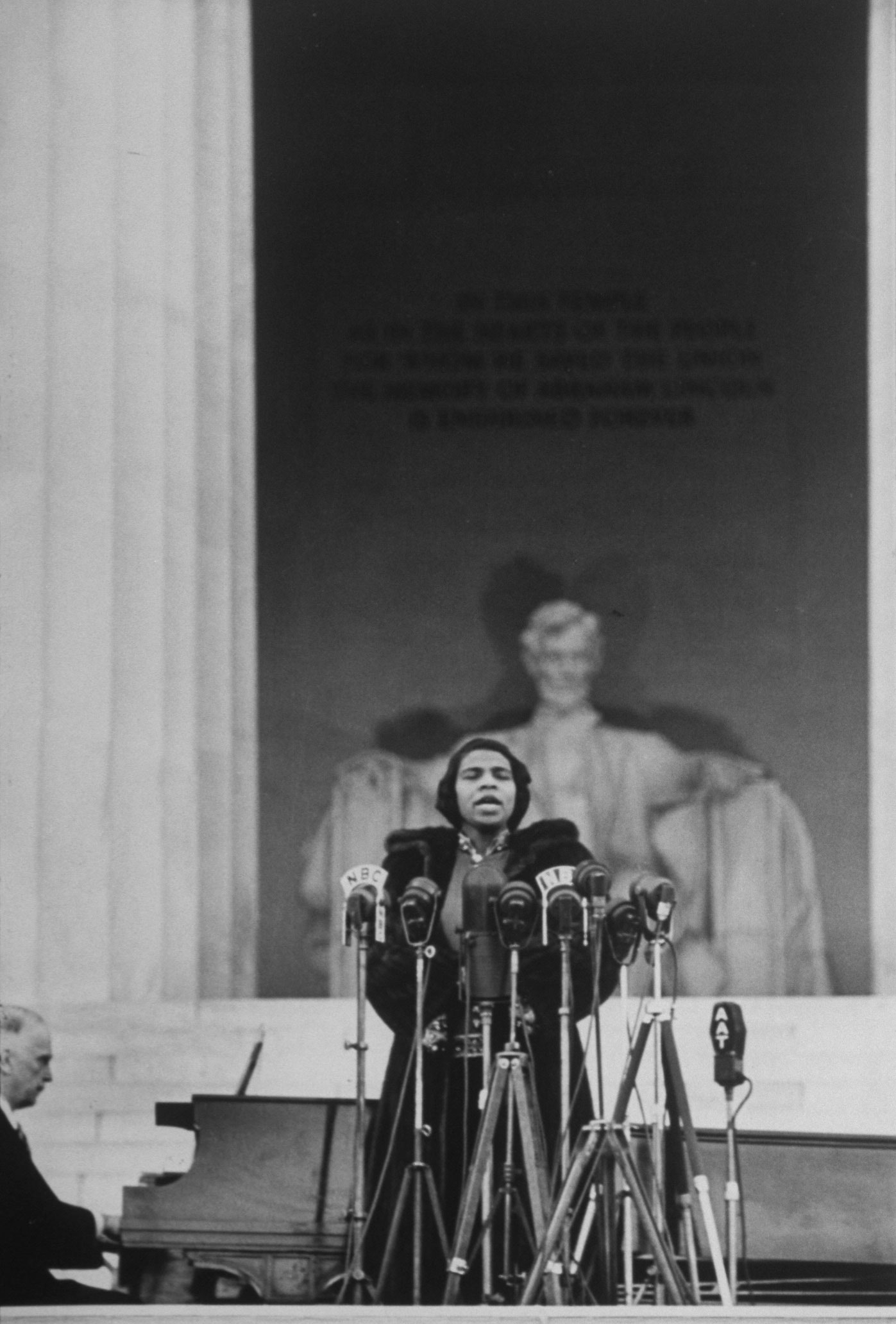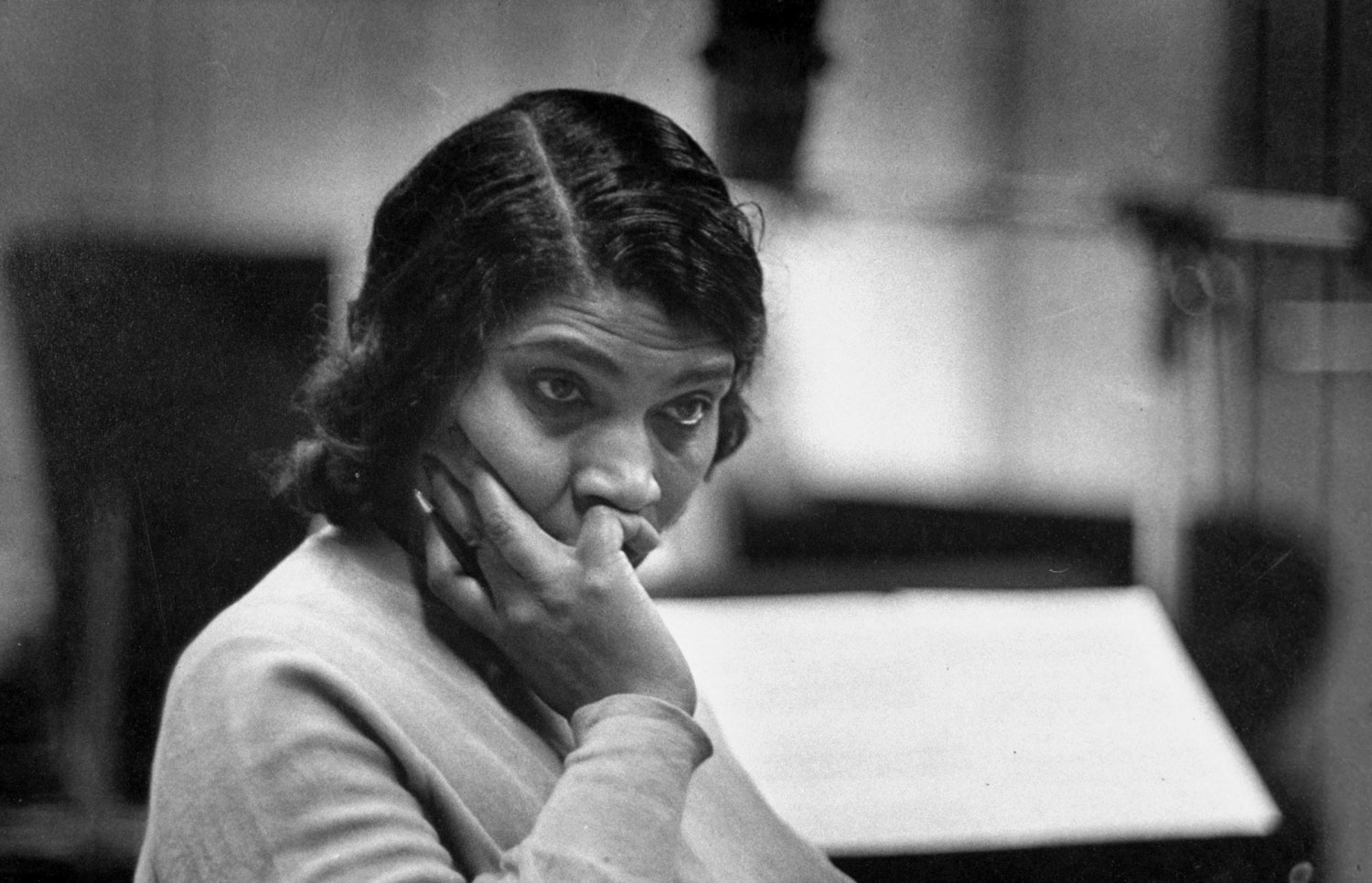
“A voice like yours is heard only once in a hundred years.” — Arturo Toscanini to the American contralto Marian Anderson
Born in Philadelphia in 1897, Marian Anderson’s long life spanned much of the 20th century and, in myriad ways, both mirrored and helped shape the age in which she lived. She sang on the world’s greatest stages and graced, with her presence and her soaring voice, historic events like Dwight Eisenhower’s and JFK’s inaugurations and the 1963 March on Washington. She counted international figures like Albert Einstein among her friends and was honored with a Congressional Gold Medal, the United Nations Peace Prize, a Grammy for Lifetime Achievement and countless other accolades and awards.
But no single moment in her distinguished public life was more significant or memorable than the landmark concert she gave at the Lincoln Memorial on Easter Sunday in 1939.
The story behind how Anderson ended up on the steps of the great memorial on that April day, performing before 75,000 people on the mall and millions more listening on the radio, is well-known enough that it needs only a brief recap here. How her friends tried to arrange a concert for her at Washington’s famed Constitution Hall; how members of the Daughters of the American Revolution, the group that owned (and today still operates) the hall, refused to allow her to perform because she was African-American; how First Lady Eleanor Roosevelt, the NAACP, the American Federation of Teachers and others protested the DAR’s refusal; and, finally, how Anderson’s 1939 Easter concert marked, in many minds, a seminal moment in the American civil rights movement.
[See and hear Marian Anderson at the Lincoln Memorial in 1939]
Here, LIFE.com celebrates Anderson’s 1939 concert and, in a broader sense, her extraordinary life and career through the signature photograph made in Washington, D.C., that day: Thomas McAvoy’s portrait of the singer as she stands before Daniel Chester French’s statue of a seated, brooding Abraham Lincoln.
At the end of her concert, an emotional Anderson addressed the appreciative throng, and the multitudes listening on radios across the country, with these simple words: “I am overwhelmed. I can’t tell you what you have done for me today. I thank you from the bottom of my heart again and again.”
All these years later, a grateful nation might well address those very same words to the regal Marian Anderson herself, in recognition of the courage and artistry she displayed on a blustery Easter Sunday three-quarters of a century ago, and on so many stages throughout her life.

W. Eugene Smith—The LIFE Picture Collection/Getty Images
More Must-Reads from TIME
- Donald Trump Is TIME's 2024 Person of the Year
- TIME’s Top 10 Photos of 2024
- Why Gen Z Is Drinking Less
- The Best Movies About Cooking
- Why Is Anxiety Worse at Night?
- A Head-to-Toe Guide to Treating Dry Skin
- Why Street Cats Are Taking Over Urban Neighborhoods
- Column: Jimmy Carter’s Global Legacy Was Moral Clarity
Contact us at letters@time.com